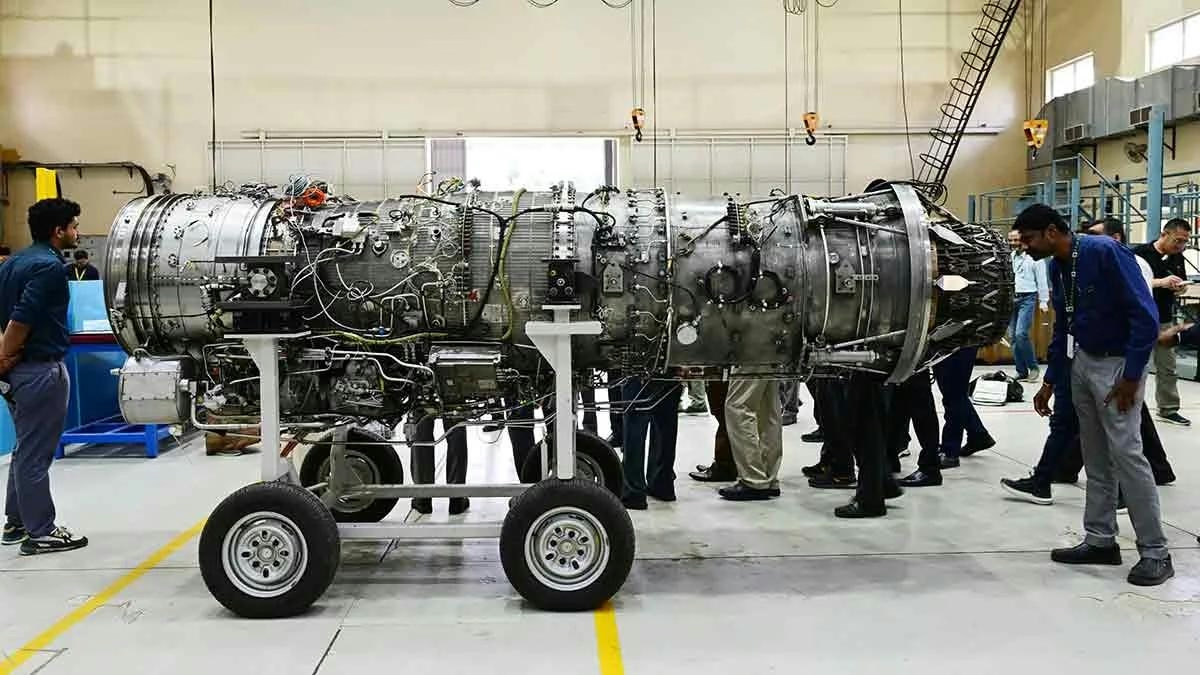AeroGenie — Your Intelligent Copilot.
Trending
Categories
India Poised to Approve Safran-DRDO Fighter Jet Engine Project

India Set to Approve Safran-DRDO Jet Engine Project for AMCA Fighter
India is poised to approve a significant defense collaboration with French aerospace leader Safran to jointly develop a 120-kilonewton (kN) jet engine for the country’s next-generation Advanced Medium Combat Aircraft (AMCA). This initiative, undertaken in partnership with the Defence Research and Development Organisation’s (DRDO) Gas Turbine Research Establishment (GTRE), is expected to proceed under a comprehensive technology transfer agreement. The project marks a crucial milestone in India’s pursuit of self-reliance in advanced defense manufacturing.
Strategic Partnership and Technological Ambitions
After nearly two years of negotiations, the proposal is reportedly nearing final approval. The joint venture aims to design and produce nine engine prototypes over a 12-year period. Initial models are expected to deliver 120 kN of thrust, with future iterations potentially reaching 140 kN. Importantly, the collaboration will operate under Indian intellectual property rights, with Safran transferring full technical know-how, including advanced single-crystal blade technology. This technology is essential for enabling engine components to withstand the extreme heat and pressure encountered in high-performance combat aircraft engines.
The timing of this decision follows Prime Minister Narendra Modi’s recent Independence Day address, where he underscored the strategic imperative of indigenous jet engine development. Defence Minister Rajnath Singh has also expressed strong support, emphasizing the government’s commitment to overcoming one of the most complex challenges in defense technology.
Significance for the AMCA Program and India’s Defense Industry
A 120 kN thrust engine is critical for the AMCA, a twin-engine stealth fighter designed to excel in high-speed combat, carry heavy payloads, and conduct long-range missions. The use of two such engines will provide the aircraft with the power necessary for advanced maneuverability and operational versatility. While DRDO has prior experience in jet engine development, notably through the Kaveri project, producing reliable high-thrust engines for combat aircraft remains a formidable technical challenge.
The AMCA program itself involves significant participation from India’s private sector, including major industrial players such as Tata Group, Larsen & Toubro, and Adani Defence. This broad-based involvement reflects India’s ambition to cultivate a robust domestic defense manufacturing ecosystem. However, the project must navigate the technical and financial complexities inherent in developing such advanced technology. Industry observers remain cautious, noting persistent skepticism about India’s ability to achieve full independence in jet engine manufacturing, given the high barriers to entry and previous setbacks.
Global Context and Strategic Implications
Globally, only a handful of countries—the United States, Russia, the United Kingdom, and France—have mastered independent production of aircraft engines. China continues to rely on Russian engines or reverse-engineered variants. India’s earlier agreements with US-based General Electric for F-404 and GE-414 engines involved partial technology transfer, estimated at around 70 percent. In contrast, the Safran partnership is expected to provide complete access to critical technologies.
The evolving international defense landscape may also favor India’s ambitions. European projects such as the Future Combat Air System (FCAS) have encountered delays and internal disagreements, potentially creating opportunities for Safran and DRDO to expand their influence in global defense collaborations.
Officials highlight France’s reliability as a defense partner, recalling its continued support for India even after the 1998 nuclear tests. Prime Minister Modi has emphasized that mastering jet engine technology is not only vital for national security but could also drive innovations with civilian applications, thereby strengthening India’s broader technological base.

Emirates Unveils Cabin Design for New Boeing 777X

Eighteen Years On, the Airbus A380 Remains Central to a $34 Billion Airline

How a boom in luxury airline seats is slowing down jet deliveries

Navitaire Outage Attributed to Planned Maintenance

DigiYatra Debuts Outside Aviation at India AI Impact Summit

Vietnam Orders Strengthen Boeing’s Commercial Outlook

Airbus Signals Uncertainty Over Future A400M Orders

JobsOhio Awards $2 Million Grant to Hartzell Propeller for Innovation Center

Collins Aerospace Tests Sidekick Autonomy Software on YFQ-42A for U.S. Air Force CCA Program

How the Airbus A350-1000 Compares to the Boeing 777
